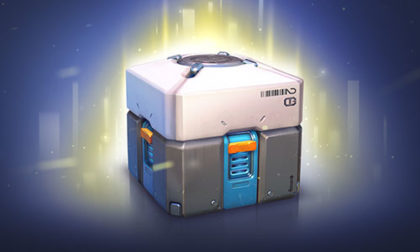Nintendo, Sony, Microsoft to Require Game Makers to Disclose Loot Box Odds
Console giants issue directive to video game developers
On Wednesday, the Entertainment Software Association (ESA) announced that the three major home video game console makers – Nintendo, Sony, and Microsoft – will require that game developers publish the “relative rarity or probability” of items in paid loot boxes. The ESA, a video game industry advocacy and lobbying organization, says that many of its members will comply with the mandate by the end of next year.
 “As an industry, we take our role in this conversation seriously,” wrote the ESA in a press release. “We plan to underscore to the FTC our industry’s deep connection to our community and shared desire to work with policymakers, parents, and players to provide the information they need for a positive game experience. This includes the important work the industry has done to create robust parental controls.”
“As an industry, we take our role in this conversation seriously,” wrote the ESA in a press release. “We plan to underscore to the FTC our industry’s deep connection to our community and shared desire to work with policymakers, parents, and players to provide the information they need for a positive game experience. This includes the important work the industry has done to create robust parental controls.”
The ESA members that already disclose loot box probabilities or that have committed to do so include (in alphabetical order) Activision Blizzard, BANDAI NAMCO Entertainment, Bethesda, Bungie, Electronic Arts, Take-Two Interactive, Ubisoft, Warner Bros. Interactive Entertainment, and Wizards of the Coast. Of course, Microsoft, Nintendo, and Sony are also part of this group.
Loot box debate continues
The topic of loot boxes has become arguably the most controversial point of discussion in the video game industry in recent years. As a gamer and a parent of gamers, I have mixed feelings about them, but many of you reading this may have no idea what they are, so let’s take a moment to review. Loot boxes are awards in games that contain mystery items. These items often serve only a cosmetic purpose – a character costume, for example – but they can also give a player an advantage in the game. Loot box items, depending on the game, can be new weapons, upgrades, or special abilities.
Most, if not all, games that employ loot box mechanics make them available for free to some extent. In the popular game Overwatch, which my son is playing as I type this, players can earn loot boxes for gaining experience points and leveling up and for winning a certain number of games in a week. Many games also allow players to purchase loot boxes with real money (Overwatch does this) or buy them with in-game currency, which itself can be purchased with real money. The latter scenario is very frequently seen in mobile games.
Those loot boxes purchased with real money are the ones that will be subject to this requirement from the console manufacturers. The probability disclosures will apply to all new games as well as updates that add in-game purchases.
The controversy surrounding loot boxes is multi-faceted. One huge problem gamers have with them – and this is my biggest gripe – is when loot boxes that can be purchased contain items that give players an in-game advantage or an opportunity to progress further than someone who does not buy loot boxes. This gives a tremendous leg-up to gamers with deep pockets, especially in competitive online multiplayer games. It also increases the temptation for players, many of whom are children, to buy loot boxes, lest they trail behind other players and, in turn, have less fun.
Even with loot boxes that only contain cosmetic items, the other major complaint, particularly from politicians and parent groups, is that loot boxes are a form of gambling. Now, there are arguments that can be made on both sides of this, but the bottom line is that with most loot boxes, you do not know what is in the box until it is opened. You will always get something (one argument against them being a form of gambling) and you usually know what range of items is possible to receive, but you do not know the exact contents of the loot box prior to opening. It is very possible for gamers to fall into the “just one more” cycle, opening loot box after loot box, trying to get that one rare item they desire.
Other game developers weigh in
And so now, game developers that use paid loot boxes in their products will be required by Nintendo, Sony, and Microsoft to make it known to players what the changes of receiving certain items is so that players can make better informed purchasing decisions. Free loot boxes, such as ones that can be earned simply by playing the game, will not have this requirement.
Epic Games, the developer of the global hit Fortnite, was not mentioned in the ESA announcement, but it has since said that it is committed to loot box “transparency.” Earlier this year, Epic changed its paid loot boxes in the co-op “Fortnite Save the World” portion of its game to “X-Ray Llamas” (loot boxes in Fortnite are llama pinatas) that show their contents before a player purchases them.
Epic also told GamesIndustry.biz, “Going forward, we’re committed to the same transparency for player purchases in all Epic Games titles.”
One such title is Rocket League, developed by Psyonix, which Epic bought this year.
Another significant game developer and member of the ESA, THQ Nordic (Darksiders, Dead by Daylight), said that it was not included in the announcement because it does not have any plans to use loot boxes or “casino mechanics” in its games.



















COMMENTS